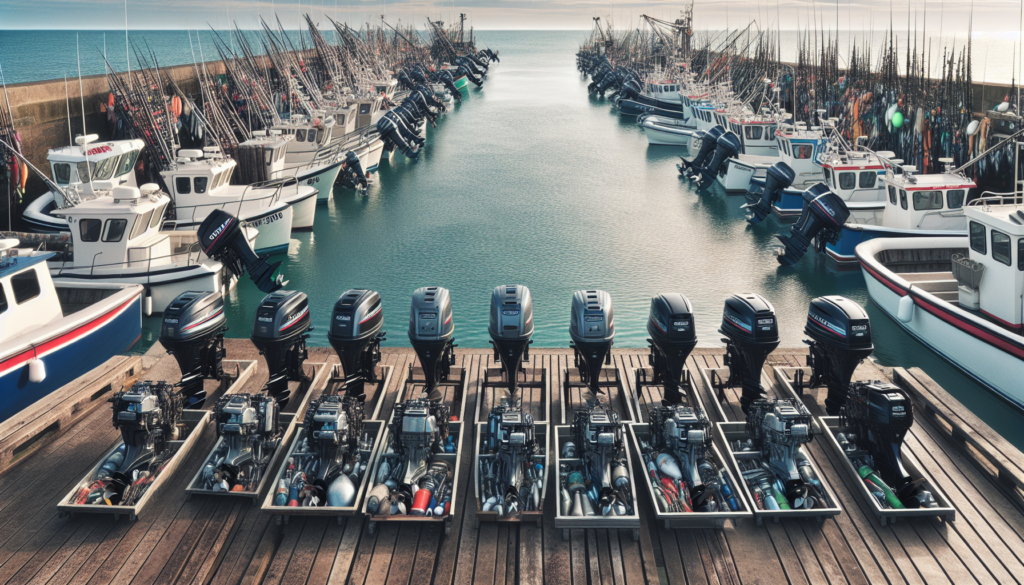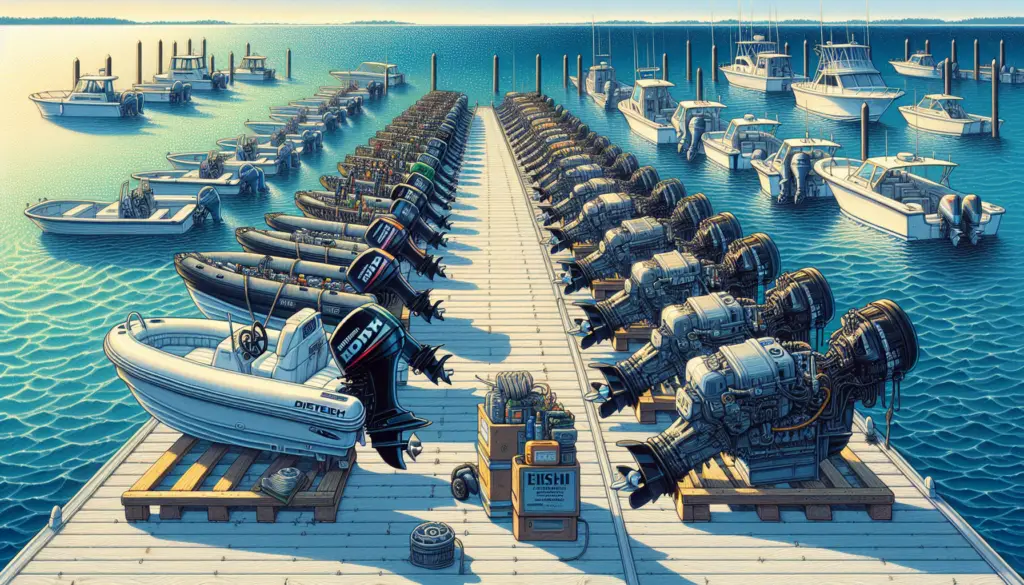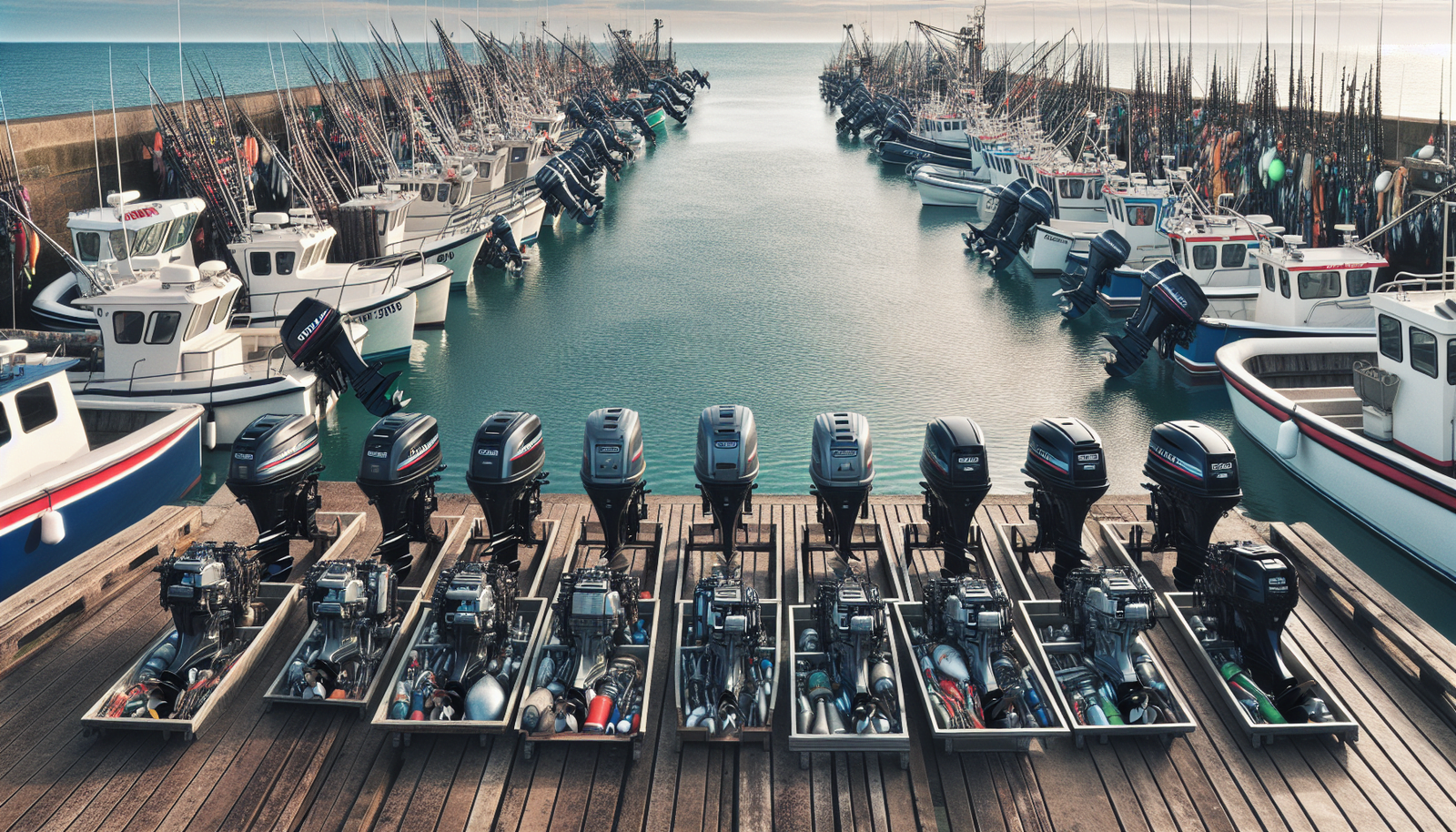Navigating the world of boat engines for your fishing lifestyle can be a daunting task, especially if you’re looking to tailor the experience to your specific needs. “The Ultimate Guide To Finding The Right Boat Engine For Your Fishing Lifestyle” is aimed specifically at equipping you with the knowledge and insights to make an informed decision. From understanding horsepower and propulsion systems to exploring the advantages of various brands and fuels, this guide is designed to cut through the noise and give you the facts you need. By the end of this informative journey, you’ll have everything necessary to select the perfect motor to accelerate your fishing endeavors with confidence.
Understanding Boat Engines
Whether you’re a seasoned angler or new to the fishing scene, the engine is the heart of your boat. It’s what literally drives your fishing expeditions, and thus requires careful consideration.
Types of boat engines
Boat engines come in a variety of types, each with their own sets of advantages and drawbacks. The most common types include inboard engines, outboard motors, and sterndrive engines. The type to choose typically depends on what you’re looking to get out of your fishing experience, the size of your boat, and, of course, your budget.
How boat engines work
Understanding how boat engines work can be a bit daunting if you’re unfamiliar with mechanical operations. But keep in mind that you don’t need to be a mechanic to gain a basic understanding. In simple terms, engines convert fuel combustion into mechanical energy, propelling the boat forward. The propeller, attached to the boat engine, moves in a circular motion creating a pressure difference, which ultimately pushes the vessel through water.
Importance of a reliable boat engine for fishing
The value of a reliable engine cannot be overstated. With fishing, you’re often far out in water and far from immediate help. A reliable engine is crucial in ensuring your boat runs smoothly during your trips and can handle varying weather conditions, preventing you from being stranded.
Determining Your Fishing Needs
Before making the big purchase, it’s vital that you have a clear understanding of your specific fishing needs.
Choosing based on type of fishing
The type of fishing you primarily do can considerably influence your boat engine choice. For instance, fly-fishing in a shallow stream will require a different kind of engine than deep-sea tuna fishing.
Identifying the appropriate boat size for your fishing
Boat size plays a significant role in engine selection. Smaller boats don’t need large engines, and in fact, a big engine might even prove counter-productive by weighing down the boat. Conversely, larger vessels require more powerful engines for optimal performance.
Considering your fishing location
Also, consider whether you’ll fish in freshwater or saltwater, as it influences the necessary engine power and durability. Saltwater is more corrosive, hence, the need for an engine designed to withstand such conditions.

Inboard Versus Outboard Motors
Let’s delve a bit deeper into two primary engine types – inboard and outboard motors.
Explaining inboard motors
Inboard motors, as the name suggests, are positioned inside the boat, generally in the center. They’re known for their power, making them ideal for larger vessels. Plus, they keep the boat’s stern clear, which can be beneficial for certain types of fishing.
Understanding outboard motors
Outboard motors, on the other hand, are mounted on the boat’s exterior, usually at the stern. They’re easier to maintain and repair than inboard motors because of their accessibility.
Comparing the benefits and drawbacks of each
While inboard motors are more powerful, outboard motors often offer better maneuverability. However, the decision should ultimately be dictated by your specific fishing needs, boat size, and personal preferences.
Choosing the Right Horsepower
Of the several factors that impact a boat’s performance, horsepower (HP) ranks among the most significant.
Effects of horsepower on boat performance
Higher horsepower translates to greater speed and improved handling in rough waters. However, it also increases the weight of your boat and possibly, your fuel consumption.
Assessing the right horsepower based on your fishing needs
Your fishing needs will determine the desirable horsepower. For example, if you partake in big game fishing, a more powerful engine is likely necessary to swiftly and efficiently help you travel larger distances. Meanwhile, smaller boats used for calm lake fishing might only require minimal horsepower.
Balancing horsepower and fuel efficiency
Remember, a powerful engine with high horsepower might also consume more fuel. Unless you’re willing to bear higher fuel costs, it may be more efficient to consider an engine that balances both horsepower and fuel efficiency.

Factor in Fuel Efficiency
Your boat’s motor impacts not only its performance but its operating costs as well.
Importance of fuel efficiency in fishing
A fuel-efficient engine saves money and is better for the environment. In addition, the less often you need to refuel, the more time you can spend fishing and less worrying about the proximity to the nearest fuel docks.
Comparing the fuel efficiency of different engine types
When comparing fuel efficiency, newer models tend to run better than older motors. Recent advancements in technology have led to engines that provide more power while burning less fuel. Four-stroke engines and diesel inboard engines usually prove more efficient than two-stroke versions, for instance.
How to maintain fuel efficiency
Maintaining your engine properly can significantly improve its fuel efficiency. This includes regular oil changes, using quality fuel, and keeping the propeller in top condition.
Considering the Engine Brand
Brand reputation is a legitimate consideration when choosing boat engines.
Top engine brands in the market
Some of the top engine brands include Mercury Marine, Yamaha, Honda Marine, and Suzuki Marine. These companies have proven track records in producing reliable, quality boat engines.
Evaluating reliability and performance of top brands
When assessing each brand, look at factors such as the engine’s performance, reliability, fuel-efficiency, and maintenance requirements. Don’t forget to review users’ experiences for a well-rounded analysis.
Checking brand warranties and services
Check out each brand’s warranty and customer service too. A good warranty gives you peace of mind, while reliable customer service ensures your queries and concerns will be handled promptly.
Maintenance and Upkeep
Boat engine maintenance can seem overwhelming, but being proactive will save you from future headaches.
Routine maintenance for boat engines
Just like cars, boat engines require routine check-ups and maintenance, involving oil changes, changing spark plugs, and cleaning or replacing air filters. Regular inspection for potential issues like leaks or corrosion is integral to extending your engine’s overall lifespan.
Costs associated with engine maintenance
Maintenance costs depend on your boat’s size, engine type, and usage. More frequent usage typically results in higher maintenance costs. However, regular maintenance can prevent significant repairs down the line, making it well worth the investment.
How to prolong engine lifespan
Proper storage is one of the key ways to prolong engine lifespan. Protecting it from harsh weather elements, especially if you’re in a region that experiences winter, and rinsing it thoroughly after every trip, particularly if you operate in saltwater, can minimize unnecessary wear and tear.
Additional Boat Engine Features
Consider additional features that could elevate your fishing experience.
Extra features to enhance fishing experience
Modern boat engines come with impressive features like digital interfaces that display fuel efficiency, engine diagnostics, and more. Navigation systems or autopilot functionalities can also prove beneficial, particularly for those new to boating.
Evaluating necessity and costs of additional features
However, remember that every extra feature comes with a cost. Decide which ones are necessary based on your specific fishing needs, boat size, and budget.
Features that may increase engine durability and performance
Some features, such as corrosion-resistant materials and better cooling systems, can extend your boat engine’s life and enhance its performance. While these might require a higher upfront investment, they can save you money in the long run.
Budgeting for Your Boat Engine
Be sure to budget for both your initial purchase and the ongoing costs that come with owning a boat engine.
Calculating the initial investment
The upfront cost includes the purchase price of the engine itself, along with any additional features you desire. Engine prices fluctuate based on factors such as brand, horsepower, and whether it’s new or used.
Considering the ongoing costs
Ongoing costs involve regular maintenance and potential repairs, fuel, and even insurance. Keep in mind, a cheaper engine might end up costing more in the long run if it guzzles fuel or constantly requires repair.
Balancing quality and affordability
Striking a balance is the key. Find an engine that fits within your budget but doesn’t compromise on the quality and reliability you need.
Making the Final Purchase Decision
This big decision requires careful thought and research.
Where to buy your boat engine
Boat dealerships, exhibitors at boat shows, and online platforms are common places to buy boat engines. Each comes with their own pros and cons. For instance, dealerships often offer post-purchase services, while online sellers may provide more competitive prices.
The role of professional guidance
Never underestimate the value of professional guidance. Technicians and seasoned boaters can provide invaluable advice based on their experience. They can help you understand the technical jargon and navigate the sea of engine models out there.
Testing and inspecting before purchase
Finally, before making your purchase, ensure you test and inspect the engine, preferably with a mechanic. This includes assessing its operational condition, verifying its specifications, and examining the hull for any damage if it’s attached to a boat.
And voila! With these considerations in mind, you’re well on your way to find the perfect boat engine for your fishing adventures. Remember, this decision forms the heart of your fishing escapades, so take the time to ensure it ticks all the right boxes. Happy boating!

